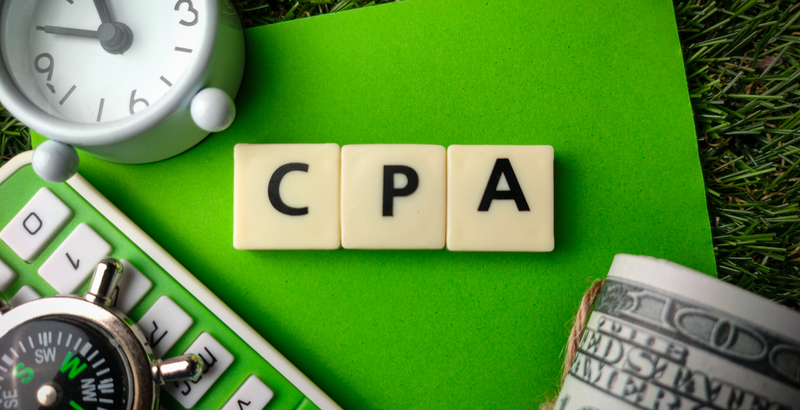
This logo isn't an ad or affiliate link. It's an organization that shares in our mission, and empowered the authors to share their insights in Byte form.
Rumie vets Bytes for compliance with our
Standards.
The organization is responsible for the completeness and reliability of the content.
Learn more
about how Rumie works with partners.
Having "CPA" after your name can increase your earning potential. CPAs earn 15% more than non-CPA accountants on average. Over the course of a career, the average CPA will earn $1 million more than their non-CPA counterparts.
It's a designation that's seen as respectable and credible in the business world. People often say, "I hire a CPA for that," or "I have a CPA do my taxes." These three letters can open doors, making you stand out.
If you're aiming for career growth in accounting, becoming a Certified Public Accountant is worth considering.
Meet the CPA Requirements
To become a Certified Public Accountant in the US, you need to meet some basic requirements:
Education: Most states require 150 credit hours, including specific accounting and business courses. A bachelor's degree isn't enough, so many people take extra classes or pursue a master's degree. Consider options like community colleges, universities, or online programs.
Experience: You'll need verified accounting experience under a licensed CPA — usually one year. This can include areas like auditing, tax preparation, or financial reporting, where your tasks are supervised and documented by a CPA.
These requirements vary by state, so research what's expected where you plan to work.
Quiz
You're 20 credit hours short of the CPA requirement. What are your best bets? Select all that apply:
Taking additional classes or pursuing a Master's degree are great ways to meet the 150-hour requirement.
Pass the CPA Exam
The Certified Public Accountant (CPA) exam covers a wide range of topics to ensure comprehensive expertise.
The exam has four sections:
Auditing and Attestation (AUD): Focuses on evaluating financial records and assessing risk.
Financial Accounting and Reporting (FAR): Covers financial statement preparation and reporting.
Taxation and Regulation (REG): Tests knowledge of U.S. tax laws, ethics, and business regulations.
Discipline Section (Choose One):
Exam costs vary by state, so be sure to check with your state's Board of Accountancy..
Create a study routine, use review courses, and practice with mock exams. Think of this as a hurdle you need to clear — it's challenging but worth it for the career opportunities ahead.
Quiz
The CPA exam has four sections, all taken at different times. Imagine you've failed one section. What are your next moves? Select all that apply:
Focus on improving weak areas and review your study plan to prepare for the next attempt. You only need to retake the failed section.
Apply for Your CPA License
Stay Certified with Continuing Education
Certified Public Accountants must complete continuing professional education (CPE) hours to keep their license active:
Requirements: Most states require around 40 hours of CPE each year.
Options: Take online courses, attend webinars, or participate in in-person workshops to fulfill these hours.
Why it matters: Failing to meet CPE requirements can lead to license suspension or revocation, which could impact your ability to work as a CPA.
Explore Certified Public Accountant career paths
Having a CPA can put you at the top of the candidate list for jobs.
Certified Public Accountants can work in a variety of fields, including:
Auditing: Reviewing financial statements to ensure accuracy and compliance.
Tax consulting: Advising individuals and businesses on tax planning and compliance.
Forensic accounting: Investigating financial fraud and legal disputes.
Corporate finance: Managing budgets, financial planning, and reporting for companies.
Advisory services: Helping businesses improve operations and financial strategies.
Quiz
Your friend who's studying accounting isn't sure she wants to pursue a CPA because of the financial commitment. What should you tell them? Select all that apply:
CPAs earn higher salaries, gain credibility, and unlock career opportunities that might not be available otherwise.
This Byte has been authored by
Robert W.
Learning Designer






